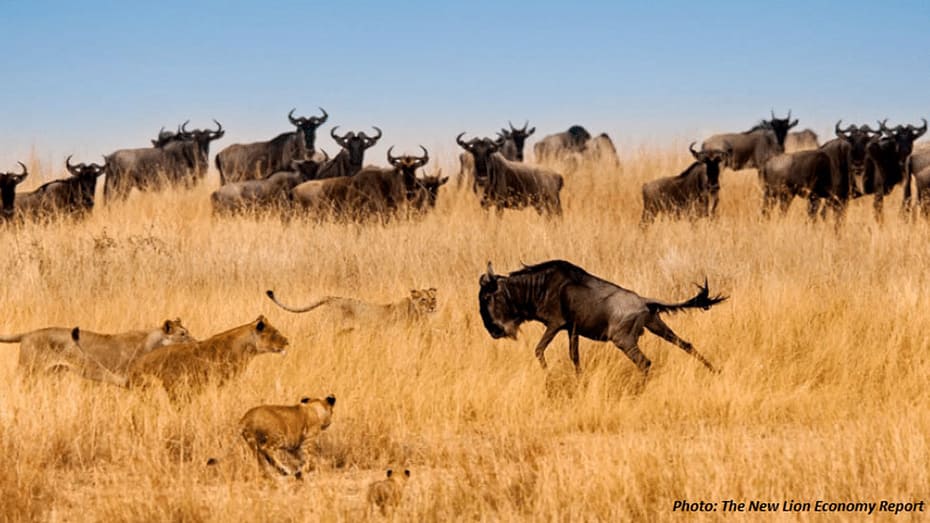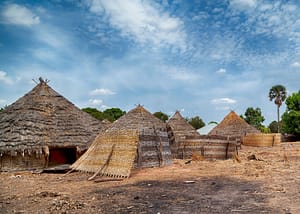Rural Namibians respond to hunting campaigns – Current Conservation
“We depend on generating income from elephant hunting which we invest back into the conservation of the species. If we stop hunting elephants, poaching will rise because the conservancy will not have any income to contribute the livelihood of its community. We have about 40 people who are employed by the conservancy and their salaries come from elephant hunting proceeds. If conservancies are not functioning, other species will also suffer.”
In an article published in Current Conservation, authors Gail C Thomson and Lesle Jansen offer a perspective on the hunting debate – and specifically the controversy around trophy hunting – drawn from a study conducted by the Ministry of Environment, Forestry and Tourism in Namibia.
When preparing their Elephant Management Plan in 2020, the Namibian government sought to capture some of the views from their rural communities on elephants—specifically on how to manage them and what to do about trophy hunting:
“The consultations for this plan therefore included many meetings with communal conservancies: community-based institutions that have been granted conditional ownership rights over wildlife that occur within their jurisdiction (their boundaries are mapped, but not fenced). Between meetings, people from the conservancies were interviewed in small groups using a questionnaire relating to elephant management

“Most of the respondents were part of the daily management (staff members, including field staff) or oversight (committee members) of their communal conservancy. As residents and managers in conservancies, these interviewees have both first-hand experiences of living with wildlife and a detailed understanding about how hunting works in their conservancies. In our experience, when rural Africans are given a chance to speak their truth they are forthright and insightful; the transcripts from these interviews did not disappoint!” Among the many elephant-related questions, interviewees were asked what would happen if elephant hunting were banned entirely and what they would like to say to anti-hunting campaigners if they were given the opportunity. These are some of the replies:”
“No income to the Conservancy, end of the CBNRM programme, no employment for people, livelihood upliftment will decline, hunger and poverty will become worse, conservancy offices will be closed down, and their assets will be repossessed.”
“The human elephant conflict will increase. We will lose income and an important source of protein. The cost of managing elephants will increase, a significant challenge for the conservancy.”
“We cannot stop hunting elephants because our conservation strategy depends upon it. People conserve and are willing to live with the elephants only if they are benefitting from them. If these people are willing to finance our developmental projects and provide us with mitigation measures, we can stop hunting.”
“Southern Africa is the last great stronghold for savannah elephants, where they are not only surviving, but thriving”, the authors explain. “Yet healthy, growing elephant populations are not easy to live with, as people in parts of Namibia can attest. The global public places great value on this large mammal, yet conserving it comes at substantial cost to local people. The practice of trophy hunting currently plays an important role in reducing that cost and providing at least some reason for African people to bear it. Those wanting to ban elephant hunting need to present suitable alternatives—not theories that sound good to other people who sit in offices far from African reality, but real income-generating options that work for the people who live with elephants.”
Click to read the full article
Click here to read a different perspective on trophy hunting in Namibia.
ABOUT THE AUTHORS:
- Gail C. Thomson has worked in Botswana and Namibia for in communal conservation areas and now runs an independent communications consultancy for conservation organisations.
- Leslé Jansen is the CEO at Resource Africa South Africa and has experience in resource rights and benefit sharing for communities.
Resource Africa supports rural African community efforts to secure their rights to access and use their natural resources in order to sustain their livelihoods. The interviews presented here were used with permission from the Ministry of Environment, Forestry and Tourism in Namibia.
Neither of the two authors or Resource Africa have any financial links to the trophy hunting industry.



